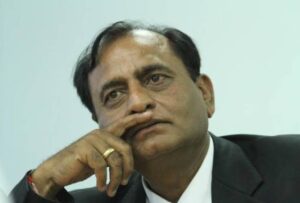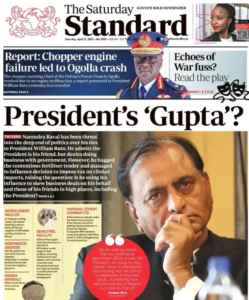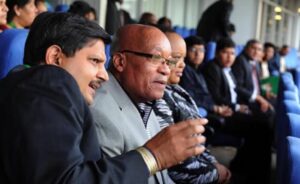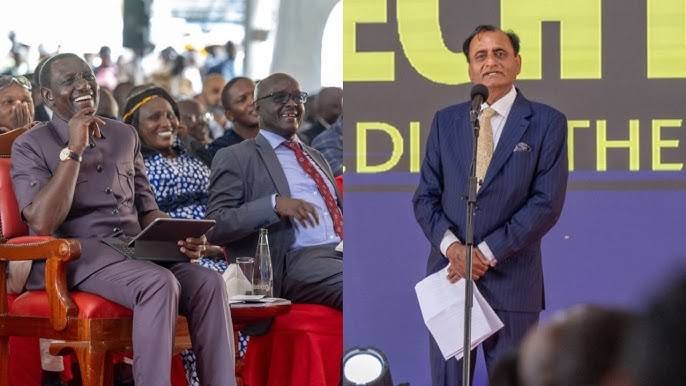Kenyan industrialist Narendra Raval is now facing growing public criticism after reports emerged about his close friendship with President William Ruto and several controversial business moves that suggest he may have more influence in government matters than he admits.
Raval is well known in the country as a successful businessman in the steel and cement industries. He has built a powerful empire through his company, Devki Group, which operates across various sectors.
In recent interviews, Raval has not denied his personal relationship with President Ruto. He openly said, “I am a friend of the President, not his business partner.”
But despite his denial of doing business with the government, many Kenyans are beginning to suspect that his ties to the president might be helping him gain unfair advantages in key government decisions.
One of the main concerns came after Raval’s company was awarded a major government contract to supply fertilizer. This tender has been criticized for lacking transparency and fair competition.
Insiders claim that the process was rushed and designed in a way that favored Raval’s firm, raising serious questions about how tenders are being awarded under the current administration.
The fertilizer deal has become a symbol of how politically connected businessmen may be securing big government contracts at the expense of more deserving or competitive bidders.
In another case that raised eyebrows, the government made a sudden decision to tax imported clinker a key material used in cement production. This policy shift was justified by the state as a way to support local manufacturing, but many experts argue that it only benefits a few companies, especially those already producing clinker locally.
Among them is Raval’s firm, which has large clinker production plants. Importers, on the other hand, now face higher costs, making their products more expensive and less competitive. This has led to increased cement prices, hurting the construction sector and making housing even more unaffordable for ordinary Kenyans.
Although there is no solid proof that Raval directly influenced the clinker tax policy, the situation has created the impression that his proximity to the president could be swaying major economic decisions.
These suspicions are deepened by the fact that Raval is not just any businessman. He is among the wealthiest individuals in Kenya and has often been photographed or seen at key state functions, something not common for regular businessmen.
This has led to comparisons with the Gupta brothers in South Africa, who were known for using their close relationship with former President Jacob Zuma to control government tenders and decisions.
That scandal, known as state capture, shook South Africa and is now being used as a warning sign in Kenya.
Raval, however, continues to claim innocence. He says he has never tried to use his friendship with the president for personal gain and that his businesses have grown only because of hard work and long-term investments.
But many Kenyans are not fully convinced. In a country struggling with public debt, high unemployment, and growing economic inequality, the idea of powerful business figures influencing government decisions behind closed doors is worrying. People are demanding more transparency in how tenders are awarded and how policies are made.
They believe that when a billionaire who is close to the president keeps benefiting from policies that hurt others, there is reason to ask hard questions.
Whether or not Raval is guilty of abusing his connections, his case shows a bigger problem the lack of clear rules and openness in how the government deals with private companies.
Without proper checks, even friendships can turn into dangerous tools of influence. And for a country like Kenya, where trust in public institutions is already low, the combination of wealth and power without transparency could lead to deep damage.



